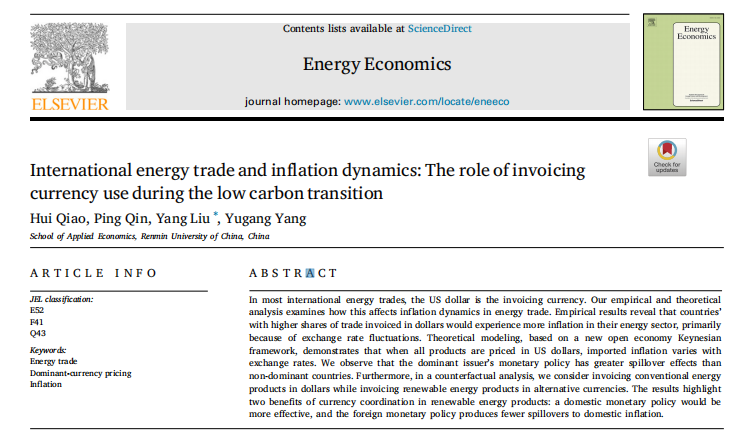Dr. Ping Qin and Yang Liu recently had a paper published in the Energy Economics. The paper titled‘ International energy trade and inflation dynamics: The role of invoicing currency use during the low carbon transition’, was coauthored with students Hui Qiao and Yugang Yang from School of Applied Economics, Renmin University of China.

Abstract
In most international energy trades, the US dollar is the invoicing currency. Our empirical and theoretical analysis examines how this affects inflation dynamics in energy trade. Empirical results reveal that countries’with higher shares of trade invoiced in dollars would experience more inflation in their energy sector, primarily because of exchange rate fluctuations. Theoretical modeling, based on a new open economy Keynesian framework, demonstrates that when all products are priced in US dollars, imported inflation varies with exchange rates. We observe that the dominant issuer’s monetary policy has greater spillover effects than non-dominant countries. Furthermore, in a counterfactual analysis, we consider invoicing conventional energy products in dollars while invoicing renewable energy products in alternative currencies. The results highlight two benefits of currency coordination in renewable energy products: a domestic monetary policy would be more effective, and the foreign monetary policy produces fewer spillovers to domestic inflation.
Other information
Publication Date:2023
Journal: Energy Economics
DOI:https://doi.org/10.1016/j.eneco.2023.107178
Read the paper here.